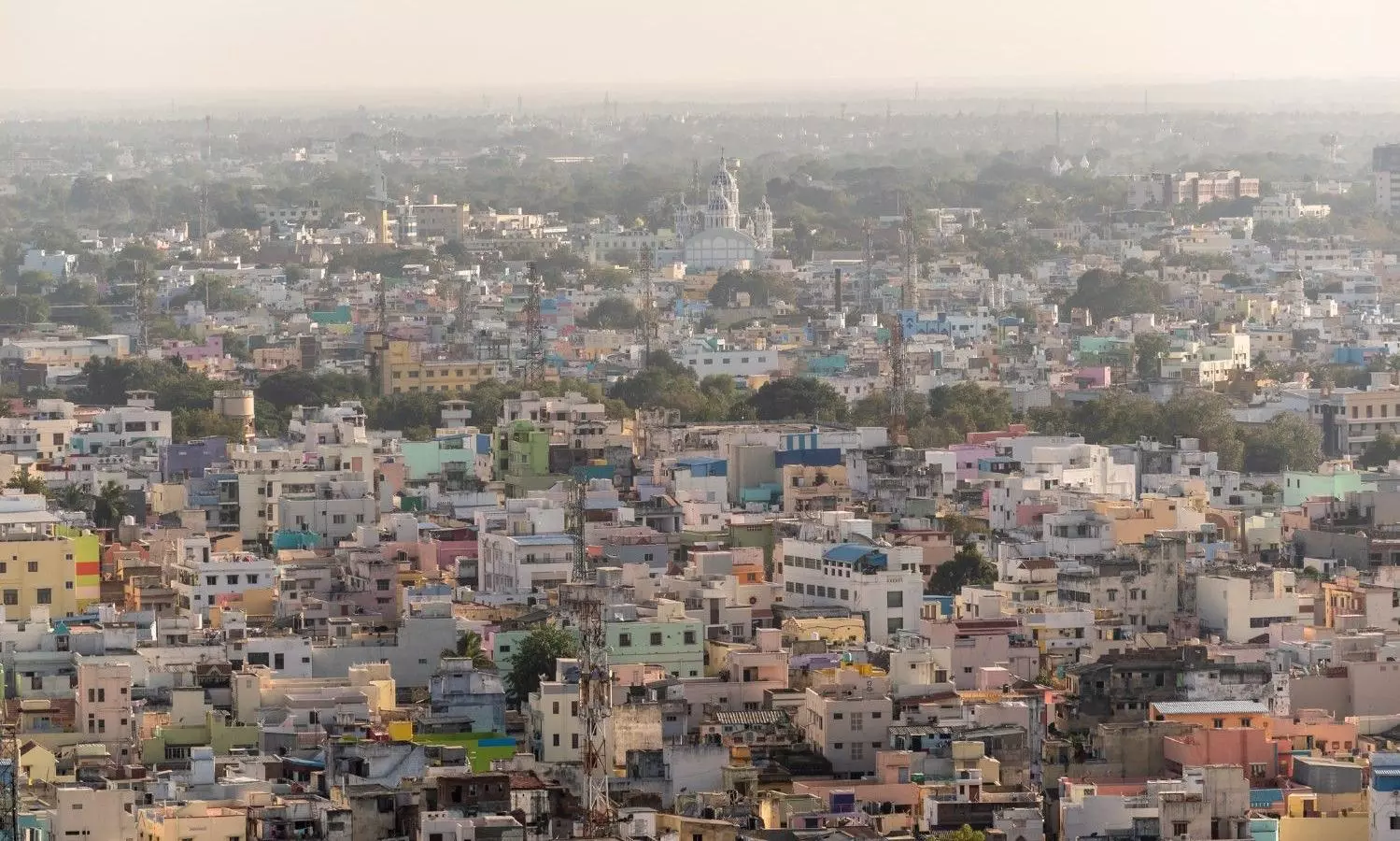
TN cities outperform national average in sustainability, but challenges remain: CII
Study covers Chennai, Coimbatore, Madurai, Trichy, Tiruppur, and Salem, delving into progress made in improving urban conditions and gaps to be addressed

As Tamil Nadu’s cities continue to experience rapid urbanisation, the state faces the critical challenge of balancing economic growth with environmental sustainability. A study by the Confederation of Indian Industry (CII) has evaluated the green performance and liveability of six major cities — Chennai, Coimbatore, Madurai, Trichy, Tiruppur, and Salem.
The report, launched by Tamil Nadu Chief Minister MK Stalin and State Industries Minister TRB Raaja at the CII South India Annual Convention in Chennai on Friday (March 28), delves into both the progress made in improving urban conditions and the gaps that need addressing to ensure long-term sustainability and quality of life for residents.
Urban growth in Tamil Nadu is accompanied by several challenges, including traffic congestion, pollution, and the depletion of green spaces. As climate change exacerbates risks like urban heat islands and flooding, it is crucial for these cities to adopt more sustainable practices to improve liveability and reduce environmental impacts.
Key recommendations
The CII study, based on over 75 parameters covering areas like green spaces, waste management, water supply, and air quality, finds that while Tamil Nadu’s cities generally perform better than the national average in many sustainability areas, there is still much to be done. Key recommendations from the report focus on improving green spaces, transportation, energy efficiency, and climate resilience.
Also Read: A 'global city' is ambitious, but what Chennai needs may be vertical growth
The study proposes several measures to increase the state's green cover. It suggests that municipal corporations in Coimbatore, Madurai, Trichy, Tiruppur, and Salem designate specific areas in newly-developed regions and master plans for public open spaces.
Furthermore, all new public infrastructure projects should include a 30 per cent green space allocation. To meet the World Health Organisation’s (WHO) recommended standard, cities should aim to improve the per capita public open space to at least 4-5 square metres within the next five years.
A city-wide plantation drive, in collaboration with the private sector, is also recommended to double green cover over the next five years.
Need for better pedestrian infra
On transportation, the study underscores the need for better pedestrian infrastructure and cycling lanes. Cities like Chennai, where only 18 per cent of roads have proper footpaths, must prioritise expansion and maintenance of walkways.
Coimbatore, Madurai, Trichy, and Salem should integrate pedestrian and bicycle-friendly infrastructure into their master plans. Promoting eco-friendly transport options such as electric vehicles and clean public transport is also essential, with periodic emission testing being enforced.
Also Read: Urban Challenge Fund: Smart Cities Mission gets new coat of paint
The report also calls for a boost in energy efficiency. The Tamil Nadu Electricity Board should accelerate the implementation of smart metres, particularly in cities with high per capita energy consumption. Additionally, municipalities should encourage the adoption of green concepts in buildings by offering incentives like reduced property taxes or increased floor area ratios. Energy audits should be mandatory for large buildings, with a focus on improving energy efficiency.
Water management, air pollution
Water supply and wastewater management are other critical areas. The study recommends expanding direct water connections to reach at least 80 per cent coverage in cities like Coimbatore, Madurai, Trichy, and Salem.
It also suggests transitioning to continuous 24/7 water supply systems in cities like Chennai and Coimbatore to improve water efficiency. Furthermore, wastewater reuse for industrial and landscaping purposes should be mandated, with localised treatment plants set up in large residential societies.
Addressing air pollution is another priority. The study suggests increasing the number of ambient air quality monitoring stations in major cities, such as Madurai and Coimbatore, and enforcing stricter controls on vehicular emissions. Cities should also mandate dust suppression measures at construction sites and ban the burning of waste in public spaces.
Also Read: India pays no heed to urban planning — Bengaluru floods are a case in point
Finally, the report advocates for a stronger focus on stormwater management and flood resilience. Municipalities should segregate stormwater drains from sewage systems and expand the stormwater drainage network, especially in flood-prone areas like Madurai and Salem. The study also recommends integrating flood-resilient building codes into urban planning, with an emphasis on permeable surfaces in new developments.

